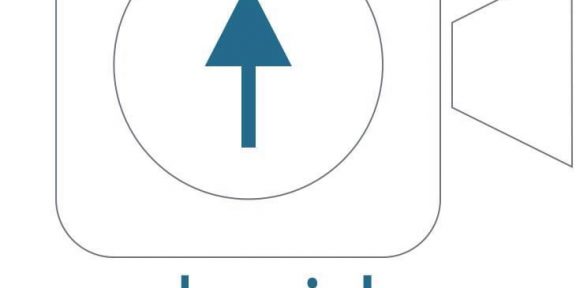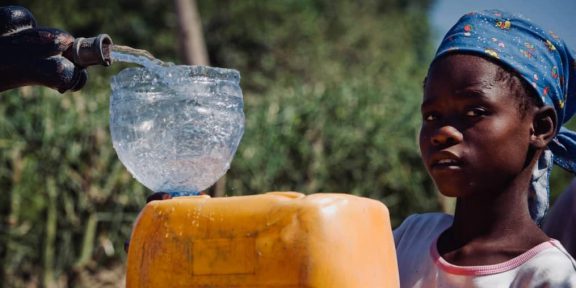For the past couple of decades, we have observed considerable changes in the Cameroonian family, with evolution at different levels such as the structure and the role of its members namely the man and the woman’s roles; the basic family education of children has also undergone some changes. Family being known as one of the most important foundations of a society, it is thus necessary to pay considerable attention to its constant evolution to detect any disrupting factors, predict future ones and try to anticipate them with global state and scientific solutions.
In the traditional Cameroonian family, the whole family was principally revolving around the man as the head of the family, the first bread provider for all the members and the one who was taking the major decisions for the family, assisted by their wives. Couples used to marry at a young age, and women were given in a state of virginity, by their families through official traditional weddings. In many tribes, men had more than one wife. Children were considered as a family’s biggest wealth and pride. They used to help in family businesses, farms and housework. As for the women, most of them were housewives and working also in plantations or small family businesses. Children’s education used to be solely the mothers’ task. Couples used to have long-lasting marriages, given that divorce was not the first option for couples even in case of problems, and it was seen as a shame. Couples generally had up to ten children per woman and parents used to be role models for their children.
Therefore, since 1981, Cameroonian law admits monogamous and polygynous unions as the base of the legal formation of families. So, it is the men who marry women, and these later are authorized to marry more than one wife. Women are not authorised to marry more than one man. Monogamy is mostly practised by Christians due to the Biblical recommendations on the sacred bond of marriage with only one wife. Polygyny on the other side was highly practised by the Muslim population of the country, also based on religious beliefs defending that, men have the right to marry up to four wives. All these religious and civil rules appeared after the colonial period. Thus, today it can be noticed that, there are many men married under the monogamy status but who practice what can be called de facto polygyny, by having several unofficial wives or mistresses. On the other hand, diverse forms of the family can be seen in the country today, such as the nuclear family (monogamous and/or polygynous types), cohabiting or companionship with a high percentage, stepfamilies, single-parent (with one of the parents as head of the family), childless family, etc. However, from the information collected from the high court of Douala-Cameroon in 2021, 30 to 50 divorce application files are registered per month in the city of Douala alone, and more than half of them end up in divorce, increasing thus the number of step-families in the country given that most of those couples have one or more children when divorcing. In terms of roles, men are still today, the main bread provider in families. Therefore, a considerable number of contemporary men have added some new habits to their original role as father and husband by increasing the time spent with their nuclear family, and through the help, some of them bring in the housework, especially with some duties labelled as women’s housework. Women, on the other hand, have undergone considerable changes at different levels. Thus, it is rarer and rarer to find Cameroonian women who are housewives without activities. Most of them intend to gain more financial independence from their husbands and society. Concerning education, women are now more likely to continue their studies until higher levels as a PhD. Children today are the result of the changes witnessed in family types and parents’ new roles. Women in most families are still the main parent in charge of the children’s upbringing. Thus, women’s pursuit of financial independence seems to bring up a few novelties inside the current family structure as well as in the genders’ repartition of roles. More so, children’s basic education quality is at risk with both parents working outdoors. At the level of ideology, Cameroonian women today, fortunately, or unfortunately, could not escape the feminist ideology as well as the new line of thought brought to them through globalization, the internet, and social media with public figures called ‘influencers’ highly followed by many, the level of education, etc. Furthermore, today, we witness a dominance of foreign culture namely the French and Anglo-Saxon cultures melted into the Cameroonian traditional culture, religion, administration and way of life. It is common today to see Cameroonian women claiming more freedom and gender equity. They demand more laws to protect them against eventual inequalities or illegal situations. Besides, one of the most discussed issues today in Cameroon is the sexual liberation and the hyper-sexualization of men and consequently of women, given that, both genders are inter-influencing each others’ actions and reactions. It should be recalled that, in a healthy society, women and children are supposed to be precious and protected inside families by men and society. However, today it becomes quite normal for young women and men to be sexually active before the age of fifteen. Young people tend to seek freedom in their way of life. It becomes more and more difficult to control them due to the numerous social changes observed. Moreover, many girls tend not to consider the honourable aspect of getting married while still a virgin as it was the norm in traditional society. Today, married or not, women have children out of marital bonds. Quite an alarming number, is one of single parents today, with men who have either abandoned the woman, died early or divorced. Researchers designate the parents’ lack of strict control and the decrease in their responsibility towards their children’s upbringing as one of the multiple causes of juvenile delinquency observed today. Based on recent observations, the family institution is weaker and weaker in Cameroon. It is losing its fundamental values and when the family is sick it is the whole society that is becoming quite unhealthy. People are more individualistic. However, Cameroonians still have a great sense of family attachment, and solidarity and they still see family as their first refuge but with the progressive changes in roles and society, somehow due to low financial income and the growing economic crisis, these values will soon disappear because life will become a fight for survival. If the decision-makers do not find solutions to facilitate people’s daily life at all levels, allowing the citizens to have access to a high socio-economic standard of life that can help parents particularly to take care of their children’s education, and each citizen to have the opportunity to decently take care of him or herself, then many factors of family disruptions will spring on. By doing this, parents could once again become role models for their children, guiding them back to their traditional values and roots. Elders in families together with professional family counsellors can also train couples on maintaining good and healthy marital and family relationships, to break the high rate of divorce, infidelity in couples and so on. Many women around the world today are their family’s bread providers, which before was the men’s role; so this can be a source of male emasculation, men’s laziness in terms of responsibility towards their families and even make them feel useless, given that their primary role, their source of power and control over their family members is taken away from them by women. Many western researchers even predict the collapse of the family system soon, due to the validation of some new types of families and lifestyles. However, we are still confident that, African countries in general, and Cameroon in particular still have the cultural and social resources necessary to protect the family institution despite everything.
Dr Roukaya NJOYA






